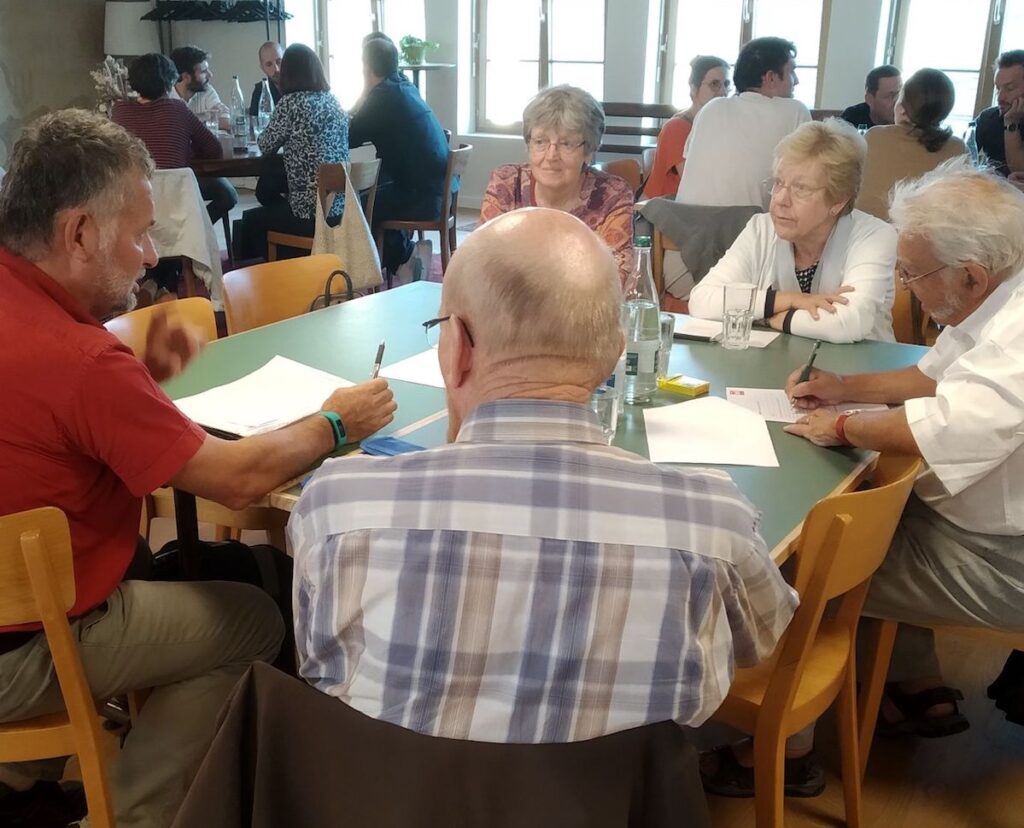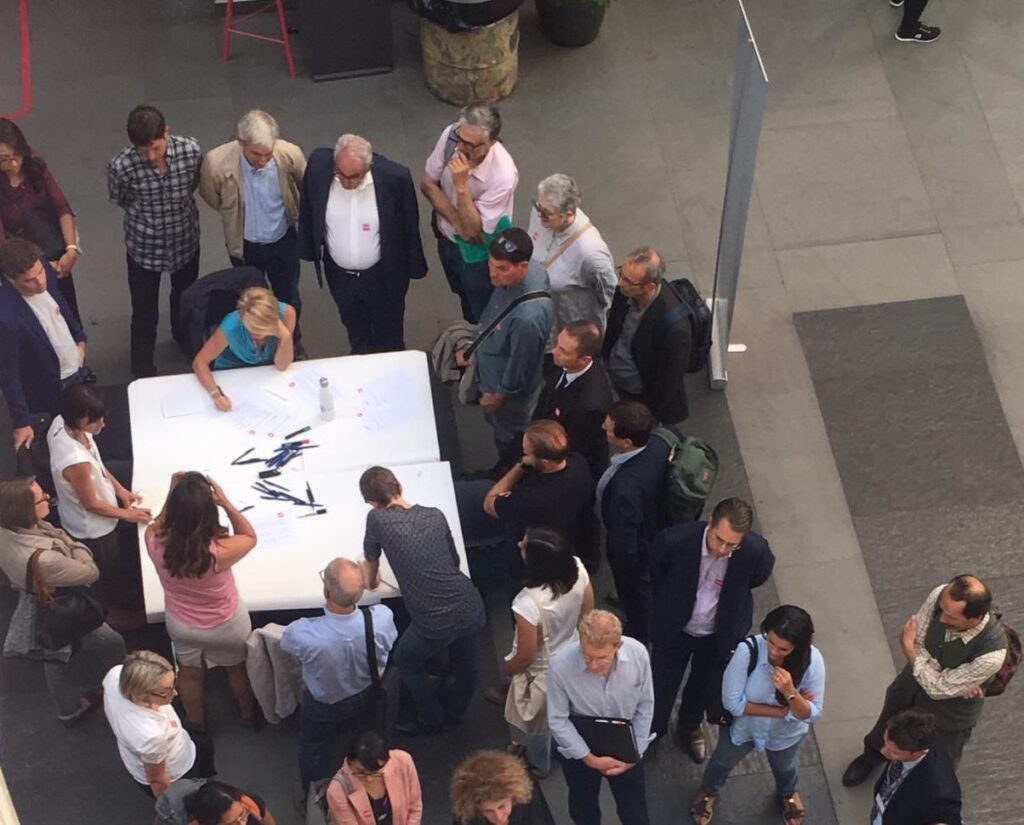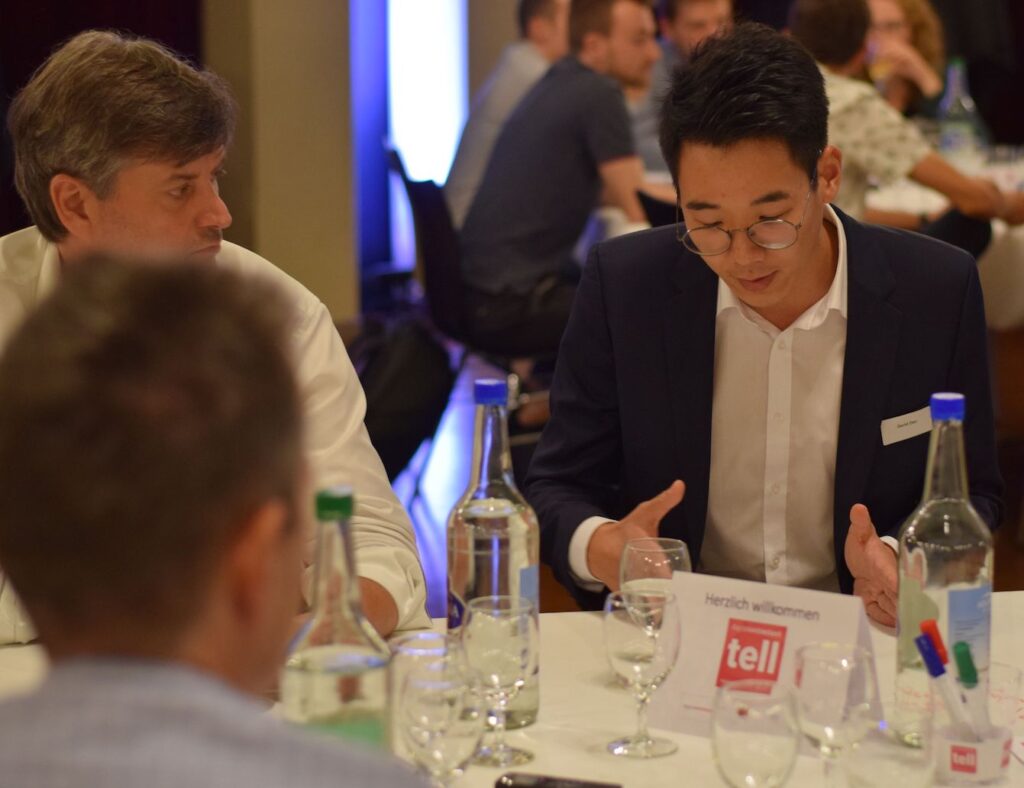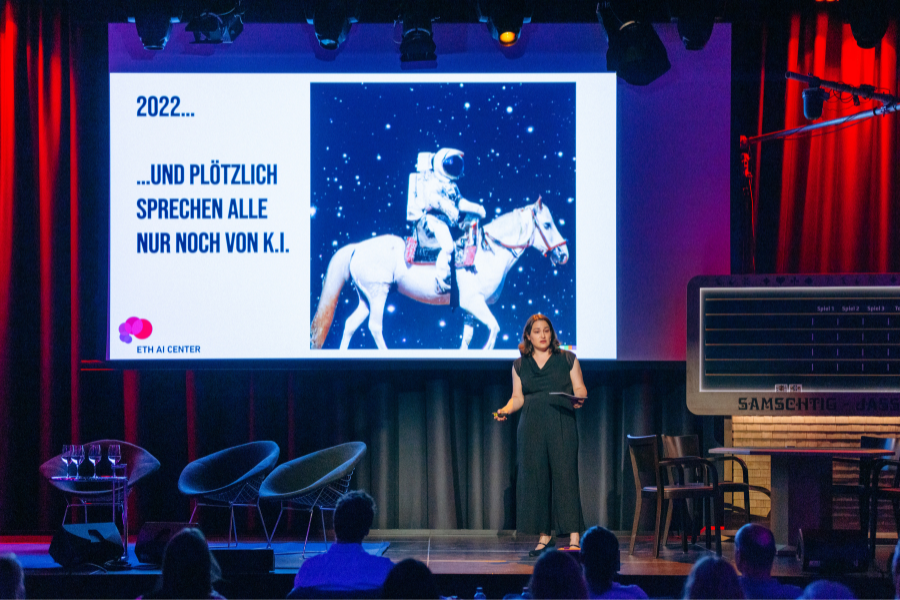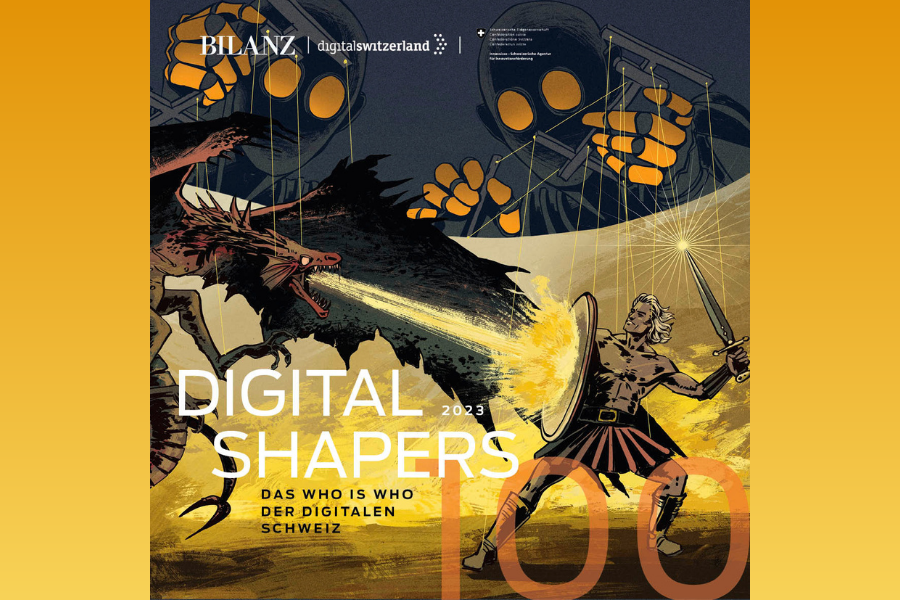On the third Swiss Digital Day, the dialogue format called ‘tell’ was used for the first time. The name says it all: it is a series of events that offers the Swiss population a platform to actively communicate their fears and hopes in times of digital transformation. More than 1’000 people took advantage of this opportunity at 18 different locations and discussed the issues that concern them. The opinions of the Swiss population were collected, evaluated and additionally supplemented with two representative surveys. This information forms the basis for the newly published «tell»-report.
“Raising public awareness of digital change forms the basis of the Digital Day. But with «tell» we want to go one step further and encourage the public to get directly involved in the change process. We were pleased with the high level of participation in the events, which are designed precisely for this purpose. In order to meet the population’s growing need for a say, we are promoting dialogue in an even more targeted manner for the upcoming edition of the Digital Day,” says Diana Engetschwiler, overall project manager for the Digital Day.
For the Oliver Wyman study, conducted in June 2019, around 2,000 people were asked for their opinions on the topic of digitalisation. In addition, sotomo recruited more than 4,000 people via the online platforms blick.ch and rts.ch before Digital Day and surveyed them on the topic of the digital transformation in Switzerland. On the recent Digital Day on 3 September 2019, around 30 hours of audio material were recorded, then transcribed and evaluated by the University of Applied Sciences Northwestern Switzerland. During that process, the generated texts were analysed using Natural Language Processing techniques and checked, among other things, for sentiments and word frequencies.
“The aim of the ‘tell’ events is to get to the heart of what is really important for each individual and for the future of the community. From the very beginning, it was clear that the valuable messages from these discussion groups would be recorded and evaluated accordingly. In addition, the ‘tell’-report is intended to reward the commitment of society”, explains Nicolas Bürer, Managing Director of digitalswitzerland.
The issue of digitalisation is perceived in a wide variety of ways, depending on the topic and question. It triggers mixed emotions with regard to the future. The high participation in the ‘tell’ events (over 1,000 people) and in the two quantitative studies shows that the population feels a growing need to discuss and debate the issue of digitalisation.
The population is particularly cautious and concerned about the topic of data. There appears to be great uncertainty about what happens to data and who has access to it. In the areas of education and smart city, respondents see the benefits of digitalisation and are prepared to use new technolgies. Learning videos enable individual and completely new ways of learning, which has led to scrutiny of the traditional classroom teaching style. A majority of respondents see the area of media and news as most heavily affected by digitalisation and 60% believe that the credibility of the news has been diminished by the internet and new technologies. In the area of health, there is general agreement that digitalisation brings many advantages in terms of research, but there is a widespread sense of uncertainty in the area of health data.
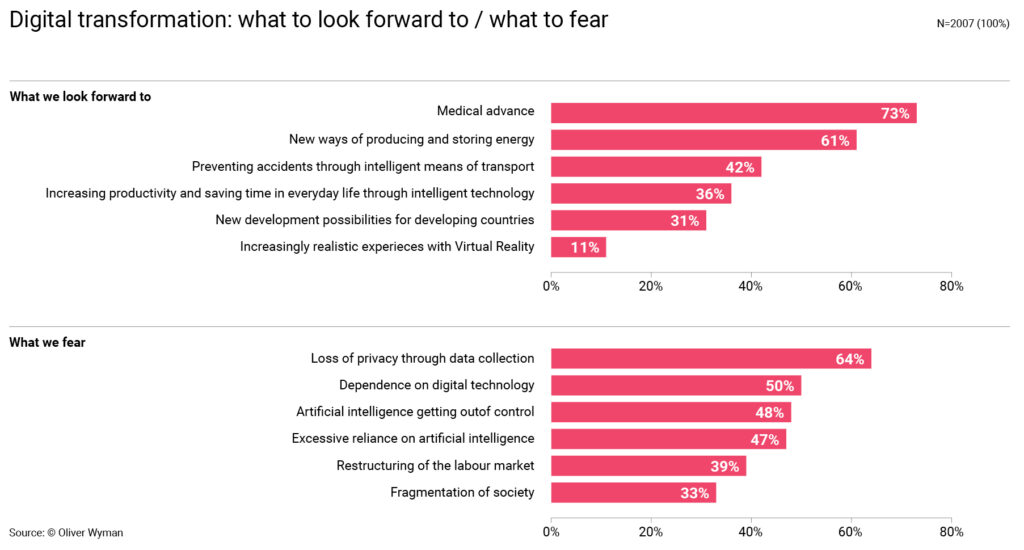
In most areas, there is a desire for increased regulation and state responsibility. Central platforms (for example, for obligatory study matter or health files) should be made available to prevent the misuse of data by private parties. According to the ‘tell’ participants, new technologies should also have a positive impact on the environment. Reduction of emissions was one of the ideas put forward. Half of all respondents admit to believing that in the future, some of their work will be done by robots. At the same time, they also emphasize the benefits of flexible working which digitalisation also brings. On the issue of mobility, it was clear that there is a degree of scepticism about self-driving vehicles, but also a positive attitude towards the opportunities for ‘Shared Mobility’ and ‘Mobility as a service’.
We would like to thank everyone who was involved in organising the events and has participated.
A particular thank you goes to Microspot, the main partner of this report, which provided the recording equipment for the «tell» pilot project. We would also like to thank Oliver Wyman, Ringier and the University of Applied Sciences of Northwestern Switzerland who provided us with the study results upon which this report is based.

- Bern University of Applied Sciences, Switzerland Innovation Park Biel and Gassmann Digital AG
- City of Lausanne
- City of St. Gallen, run by the Tagblatt newspaper
- Digital-liechtenstein.li run by the formatio private school
- digitalswitzerland, economiesuisse, the world economic forum (WEF)
- EPFL Transportation Center, EPFL Habitat Research Center, dhCenter UNIL-EPFL, SBB, Vaudoise Assurances
- HEIG-VD
- Initiative for Media Innovation (IMI), Academy of Journalism and Media (AJM) of the University of Neuchâtel, EPFL, Le Temps and the Radio Télévision Suisse (RTS)
- Impact Hub Bern, staatslabor
- Impact Hub Geneva
- Impact Hub Lausanne
- Impact Hub Lugano, Sketchin
- Impact Hub Zurich
- Migros Aare, organised by furrerhugi
- Office for Business and Tourism of the Canton of Grisons, organised by Viaduct and run by the University of Applied Sciences of the Grisons (formerly HTW Chur)
- Personalized Health Basel and Impact Hub Basel with support from DayOne and the foundation Mercator Switzerland
- PwC Switzerland
- Republic and Canton of Geneva, HES-SO University of Applied Sciences and Arts Western Switzerland, International Committee of the Red Cross (ICRC), Initiatives of Change Schweiz, University of Geneva





